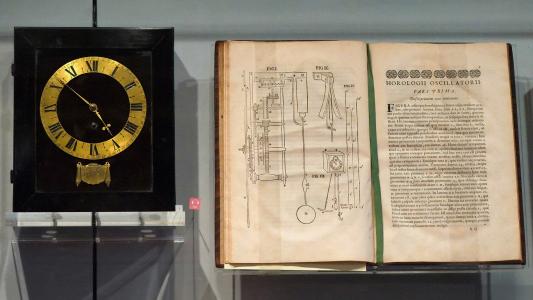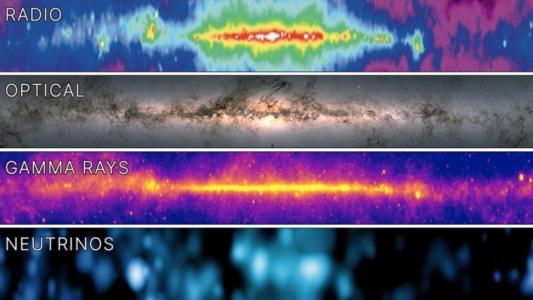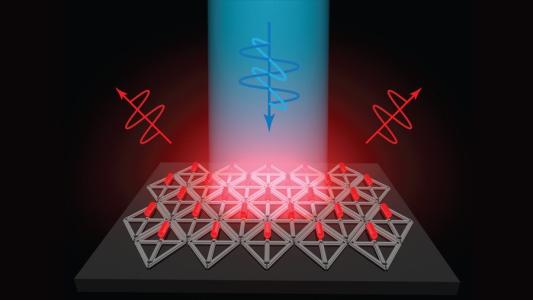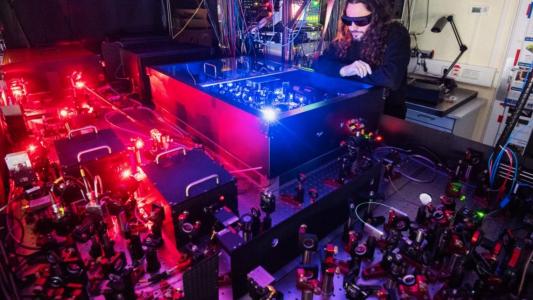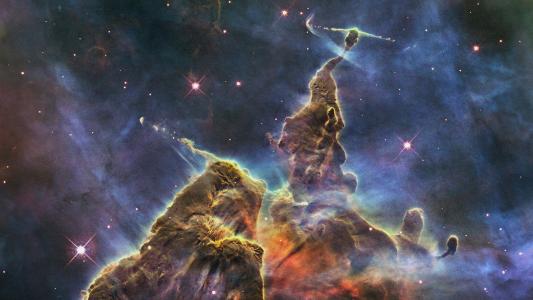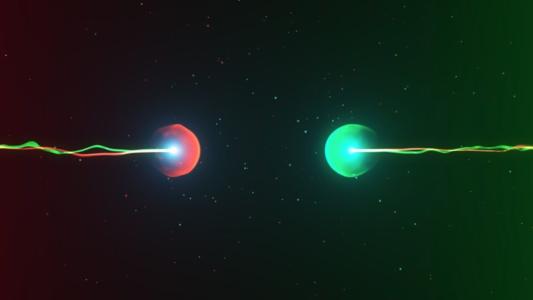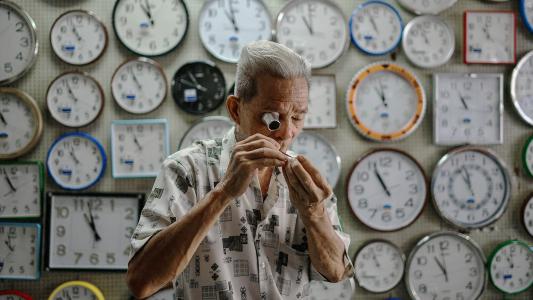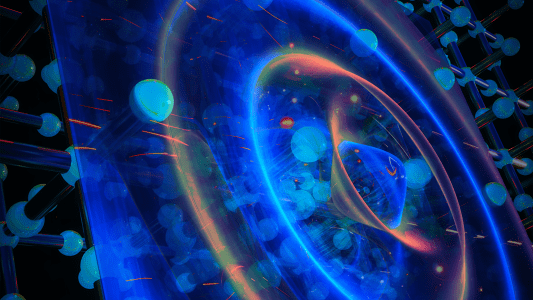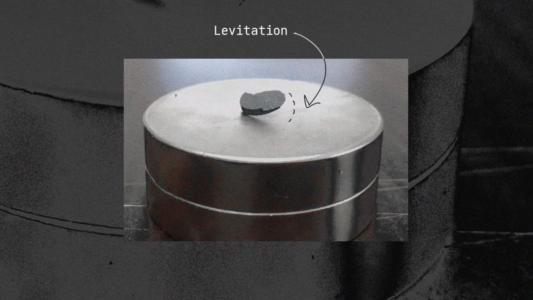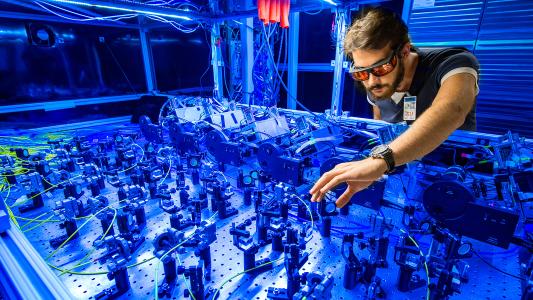Physics
The physics of why the first clock in America failed
When the first Dutch-built pendulum clock was brought to the Americas, it failed to keep accurate time on the continents of the new world.
“Ghostly” neutrinos help us see our Milky Way as never before
A unique photograph of the Milky Way galaxy was captured using the IceCube detector, which observes high-energy neutrinos from space.
Arrays of quantum rods could enhance TVs or virtual reality devices
MIT engineers have used DNA origami scaffolds to create structured arrays of quantum rods, which could be incorporated into LEDs.
Is quantum computing hype or almost here?
The potential of quantum computing is vast, but it remains uncertain when or if we will be able to harness its full capabilities.
5 revolutionary cosmic ideas that turned out to be wrong
These ideas could have revolutionized our concept of the Universe, but since evidence paves the road to reality, we've had to abandon them.
New physics? Ultra-precise measurement in particle physics confounds scientists
For electrons, the predictions of the Standard Model agree with measurements. But this isn't the case for the muon, the electron's cousin.
Time has some fundamental differences from every other dimension
While spacetime itself is four dimensional, it can be decomposed into three spatial dimensions and one time dimension.
Discovery of “demon” particle could aid superconductor hunt
The elusive “demon” particle has been discovered in a superconductor-like metal nearly 70 years after it was first predicted to exist.
We’re in a “fog of war” as experts and amateurs rush to replicate superconductor LK-99
A group of Korean scientists are claiming the first superconductor that works in our everyday environment. Is it real?
“Muon g-2” experiment hints that a mystery is bubbling inside the quantum foam
Scientists have observed discrepancies between theoretical predictions and measurements of the muon's magnetic properties. What's hiding?
